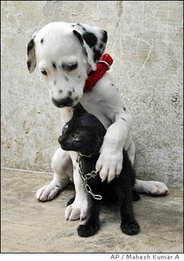Want More? Scroll Down!
What is a Joke ?
In 1975 anthropologist Mary Douglas noted that "Joking is one mode of expression has yet to be interpreted in its total relation to other modes of expression";[1] scholar Seth Graham remarked that 30 years later that statement is still largely valid.[2]
Jokes are performed either in a staged situation, such as a comedy in front of an audience, or informally for the entertainment of participants and onlookers. The desired response is generally laughter, although loud groans are also a common response to some forms of jokes, such as puns and shaggy dog stories.
List of Videos
Recomended Humour On The Web
Labels
- Malayalam (144)
- Ads (106)
- English (29)
- Tom n Jerry (28)
- Salim Kumar (20)
- Tamil (19)
- Cartoon (10)
- Funny animals (7)
- Rated (7)
- Funny Magic (6)
- Trailer (4)
- Sports Comedy (3)
- Funny Ads (1)
- LargeTV's (1)
- Stick Animation (1)
Comedy as Wikipedia Defines
The word Comedy has a classical meaning (comical theatre) and a popular one (the use of humor with an intent to provoke laughter in general).
In the theater, its Western origins are in ancient Greece tragedy, a genre characterised by a grave fall from grace by a protagonist having high social standing. Comedy, by contrast, portrays a conflict or agon (Classical Greek ἀγών) between a young hero and an older authority, a confrontation described by Northrop Frye as a struggle between a "society of youth" and a "society of the old". A more recent development is to regard this struggle as a mere pretext for disguise, a comical device centered on uncertainties regarding the meaning of social identity. The basis of comedy would then be a plot mechanism conceived to engender misunderstandings either about a hero's identity or about social being in general.
In common, present day usage the word comedy almost always refers to the creation or presentation of humor with the intention of provoking laughter. Most comedy contains variations on the elements of surprise, incongruity, conflict, repetitiveness, and the effect of opposite expectations, but there are many recognized genres of comedy. Satire and political satire use ironic comedy to portray persons or social institutions as ridiculous or corrupt, thus alienating their audience from the object of humor. Parody borrows the form of some popular genre, artwork, or text but uses certain ironic changes to critique that form from within (though not necessarily in a condemning way). Screwball Comedy derives it's humor largely from bizarre, surprising (and improbable) situations or characters. Black comedy is defined by dark humor that makes light of so called dark or evil elements in human nature. Similarly scatological humor, sexual humor, and race humor create comedy by violating social conventions or taboos in comedic ways. A comedy of manners typically takes as it's subject a particular part of society (usually upper class society) and uses humor to parody or satirize the behavior and mannerisms of it's members. Romantic Comedy is a popular genre that depicts burgeouning romance in humorous terms and focuses on the foibles of those falling in love.


